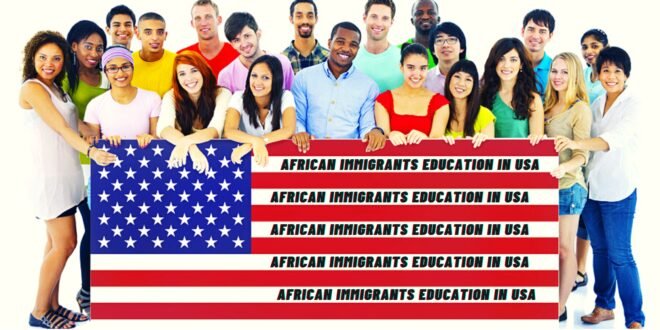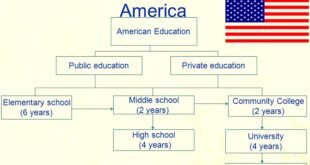Introduction
African immigrants education in USA
In recent decades, the United States African immigrants education in USA has seen a significant increase in the number of African immigrants education in USA seeking better opportunities and a brighter future. This influx of diversity has brought forth unique challenges and African immigrants education in USA opportunities in the realm of education. From pursuing African immigrants education in USA higher education African immigrants education in USA to overcoming cultural and systemic barriers, African immigrants are making remarkable strides in the African immigrants education in USA American education system.
African immigrants education in USA
The Growth of the African Immigrant Community
The United States has witnessed a surge in the African immigrants education in USA population of African immigrants over the African immigrants education in USA past few decades. Drawn by economic prospects, education, and a desire African immigrants education in USA for a better life, African immigrants have become an integral African immigrants education in USA part of American society.
Navigating Cultural Differences
African immigrants often face the challenge of acclimating to a new culture and educational system. Adapting to different teaching methods and communication styles can pose initial hurdles.
African immigrants education in USA
Language Barriers
Language can be a barrier to education for many African immigrants. While English is often a second language, mastering academic English is crucial for success in American schools and universities.
Pursuing Higher Education
African immigrants, like other international students, can face financial constraints with higher education. However, many organizations and institutions offer scholarships and financial aid to deserving students.
African immigrants education in USA
The Role of Community College
Community colleges provide a stepping stone for African immigrants to enter the American education system. They offer a more affordable and flexible option for improving language skills and earning college credits.
Cultural and Systemic Challenges
African immigrants may encounter stereotypes and bias that can affect their self-esteem and academic performance. Educating institutions about cultural diversity and fostering inclusive environments is essential.
Navigating the Education System
Understanding the American education system’s intricacies, such as standardized testing and choosing majors, can be complex for newcomers. Guidance and mentorship programs can ease this process.

Rising to Prominence
Many African immigrants have defied odds and achieved remarkable success. From entrepreneurs to academics, their contributions enrich both their communities and the nation.
Chimamanda Ngozi Adichie
Renowned Nigerian author Chimamanda Ngozi Adichie’s powerful narratives shed light on the African immigrant experience, inspiring others to pursue education and overcome challenges.
Strengthening Support Systems
Community organizations and educational institutions must collaborate to create targeted support systems that address the unique needs of African immigrants.
Educational curricula that highlight Africa’s history, cultures, and contributions can foster inclusivity and respect among all students.
The Growth of the African Immigrant Community
The 20th and 21st centuries have seen a remarkable increase in the population of African immigrants in the United States. Drawn by economic prospects, educational opportunities, and a desire for improved quality of life, African immigrants have become an integral part of American society. This influx has contributed to the country’s cultural diversity and enriched the fabric of its communities.
Navigating Cultural Differences
One of the primary challenges faced by African immigrants in the American education system is adapting to new cultural norms. The transition from their home countries to the USA often involves significant adjustments in communication styles, social interactions, and educational methodologies. This cultural gap can pose initial hurdles for students as they attempt to integrate into the academic environment.
Language Barriers
Language barriers present a significant obstacle to education for many African immigrants. While they often teach English in their home countries, academic English proficiency is crucial for success in American schools and universities. Mastering complex academic vocabulary and communication styles can take time, and language barriers may affect students’ confidence and academic performance.
Overcoming Financial Obstacles
The pursuit of higher education in the United States comes with financial challenges, especially for international students. African immigrants, like their peers, often face financial constraints. However, numerous organizations and educational institutions offer scholarships, grants, and financial aid to deserving students, alleviating some of the financial burdens associated with education.
The Role of Community College
Community colleges play a crucial role in facilitating the entry of African immigrants into the American education system. These institutions provide a more affordable and flexible option for individuals looking to improve their language skills, earn college credits, and transition smoothly into four-year universities. Community colleges also offer support services tailored to the needs of international students, helping them adjust to the academic environment.

Stereotypes and Bias
African immigrants, like other minority groups, may encounter stereotypes and biases that impact their educational experiences. Prejudices and misconceptions about their abilities can affect their self-esteem and academic performance. Educators and institutions must work collaboratively to create inclusive environments that celebrate diversity and eliminate biases.
Navigating the Education System
Navigating the American education system can be complex, even for native-born students. For African immigrants, understanding the nuances of standardized testing, choosing majors, and fulfilling degree requirements can be overwhelming. Mentorship programs and guidance counselors can play a pivotal role in assisting students with these important decisions, ensuring that they make informed choices about their education and career paths.
Rising to Prominence
Numerous African immigrants have defied the odds and achieved remarkable success in various fields. From entrepreneurs to academics, their contributions have not only enriched their communities but also the entire nation. These success stories serve as sources of inspiration for aspiring African immigrant students, demonstrating that with determination and perseverance, they can overcome challenges and thrive.
Chimamanda Ngozi Adichie
One notable African immigrant who has made a significant impact is Chimamanda Ngozi Adichie, a renowned Nigerian author. Adichie’s compelling narratives shed light on the African immigrant experience, highlighting the complexities of cultural integration, identity, and pasting education. Her works inspire readers to embrace their heritage while navigating new horizons.
Strengthening Support Systems
To ensure the success of African immigrant students, it is essential to establish comprehensive support systems. Community organizations, educational institutions, and government agencies should collaborate to address the unique challenges faced by these students. Tailored mentorship programs, counseling services, and academic resources can contribute to their academic and personal growth.
African immigrants education in USA
Celebrating Diversity
Educational curricula should reflect the diversity of the African continent and its diaspora. Incorporating African history, cultures, and contributions into the curriculum not only enhances the educational experience for African immigrant students but also fosters greater cultural understanding among all students. This inclusivity can lead to a more tolerant and harmonious society.
African immigrants education in USA
African immigrants education in USA
Conclusion
The journey of African immigrants in the American education system is one of resilience, determination, and achievement. Despite facing cultural, linguistic, and systemic challenges, these individuals contribute significantly to American society and show the transformative power of education.
The journey of African immigrants in the American education system is a testament to their resilience, determination, and capacity to thrive. Despite facing cultural, linguistic, and systemic challenges, these individuals contribute significantly to American society. Their pursuit of education not only transforms their own lives but also enriches the nation’s tapestry of diversity and innovation.
African immigrants education in USA
FAQs
How has the number of African immigrants in the USA changed over time?
The USA has experienced a notable increase in the population of African immigrants in recent decades.
What are some common challenges African immigrants face in American schools?
Challenges include adapting to new teaching methods, language barriers, and navigating cultural differences.
Are there scholarships available specifically for African immigrant students?
Yes, many organizations and institutions offer scholarships to help African immigrant students pursue higher education.
How can community colleges benefit African immigrants pursuing education?
Community colleges provide a more affordable and flexible pathway for improving language skills and earning college credits.
What can be done to promote inclusivity and support for African immigrants in education?
Fostering inclusive environments, providing mentorship, and incorporating diverse curricula can promote support and inclusivity.
How has the number of African immigrants in the USA changed over time?
The USA has experienced a notable increase in the population of African immigrants in recent decades.
What are some common challenges African immigrants face in American schools?
Challenges include adapting to new teaching methods, language barriers, and navigating cultural differences.
Are there scholarships available specifically for African immigrant students?
Yes, many organizations and institutions offer scholarships to help African immigrant students pursue higher education.
How can community colleges benefit African immigrants pursuing education?
Community colleges provide a more affordable and flexible pathway for improving language skills and earning college credits.
What can be done to promote inclusivity and support for African immigrants in education?
Fostering inclusive environments, providing mentorship, and incorporating diverse curricula can promote support and inclusivity.
 Insu Edu Tech Insurance, Education & Technology
Insu Edu Tech Insurance, Education & Technology




